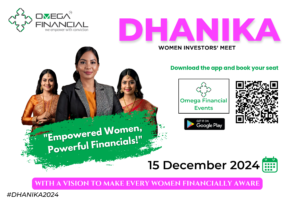
In 2025, the way people learn about personal finance has shifted dramatically. The fusion of social media, mobile-first platforms, and interactive financial education resources has transformed financial learning from a passive, one-way flow of information into an engaging, community-driven experience. This shift is shaping a generation that is not just financially literate, but also highly alert to scams, frauds, and market risks.
1. Instant Access to Financial Knowledge
Today, financial education is literally at our fingertips. From podcasts breaking down investment strategies to YouTube explainers on budgeting, risk management, and cryptocurrency, learning is accessible anytime, anywhere. Banks, government bodies, and credible institutions now create interactive apps, webinars, and gamified learning experiences to simplify complex topics.
The biggest advantage? Reach and engagement. People who may never have attended a physical workshop are now actively consuming financial knowledge daily—making them better prepared to make smart money decisions.
2. Social Media: Real-Time Financial Updates
Platforms like Twitter, Instagram, and LinkedIn have become real-time news hubs for market movements, policy updates, and scam alerts. A single viral post can warn millions about a new phishing scheme or investment fraud within hours—often faster than traditional media.
This real-time nature not only keeps investors informed but also enables quicker action—whether it’s adjusting portfolios during market volatility or avoiding fraudulent platforms entirely.
3. Heightened Scam and Fraud Awareness
The rise of “finfluencers” and watchdog accounts has made scam detection crowd-powered. Reviews, whistleblower posts, and public discussions often expose shady schemes before authorities step in. Regulatory bodies are also adapting, using these same platforms to push out scam alerts instantly.
This collective vigilance means fraudsters have less time to operate before being detected, reported, and shut down.
4. Digital Literacy: From Knowledge to Smart Action
In the digital era, financial literacy is more than understanding interest rates or mutual funds—it’s about knowing how to navigate the online financial world safely.
Modern education programs now teach:
- Emotional intelligence in money matters
- How to filter persuasive online content
- How to resist impulsive or peer-pressure-driven spending
This integrated approach ensures that people don’t just learn financial concepts but also develop the critical thinking skills to apply them wisely in a world full of marketing hype and unregulated products.
5. Community-Driven Financial Education
Online communities like Reddit’s r/personalfinance, Facebook groups, and even regional WhatsApp circles have become trusted platforms for peer-to-peer advice. Members share real experiences—both successes and mistakes—so others can learn and avoid common traps.
The result? Financial education has become interactive and continuous, with lessons spreading rapidly across networks.
Omega Financial’s Mission in Central Chhattisgarh
In the heart of India, Omega Financial is taking this digital revolution a step further. Committed to making every Indian financially literate, Omega Financial has already conducted 100+ financial education events and 20+ investor awareness programs across Central Chhattisgarh.
Through seminars, workshops, and digital content, they are bridging the gap between traditional financial wisdom and modern digital literacy, empowering communities to make smarter financial choices.
The Takeaway
Financial education in 2025 is faster, more accessible, and more collaborative than ever before. With the combined force of digital platforms, social media, and community learning, individuals are better equipped to build wealth, avoid scams, and navigate complex financial landscapes.
The future of money management belongs to those who can blend traditional financial wisdom with digital literacy—and organizations like Omega Financial are ensuring that future reaches every corner of the country.
Disclaimer: The information provided in this infographic is for educational purposes only and should not be considered as financial advice. We recommend consulting a certified financial professional before making any major financial decisions. Omega Financial is not liable for any decisions made based on this material.
Investment in the equity market and securities is subject to market risk; read all the scheme-related documents carefully.

